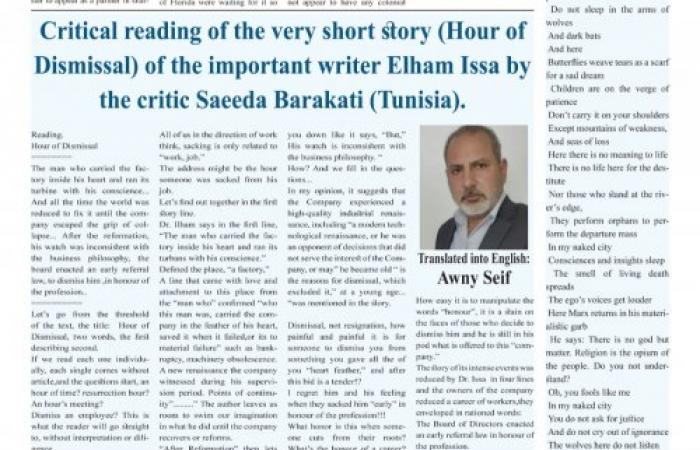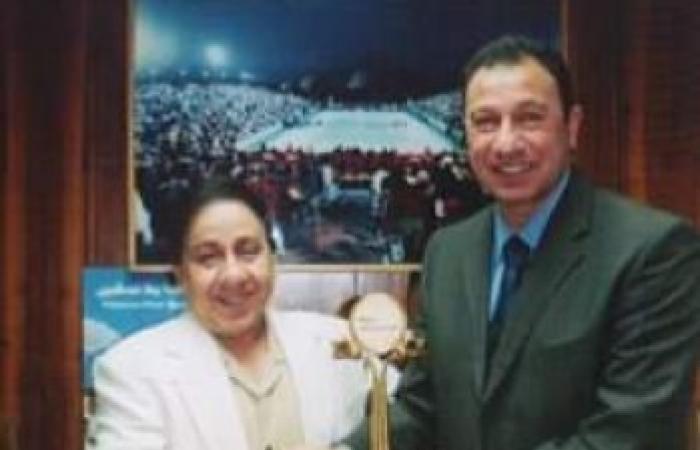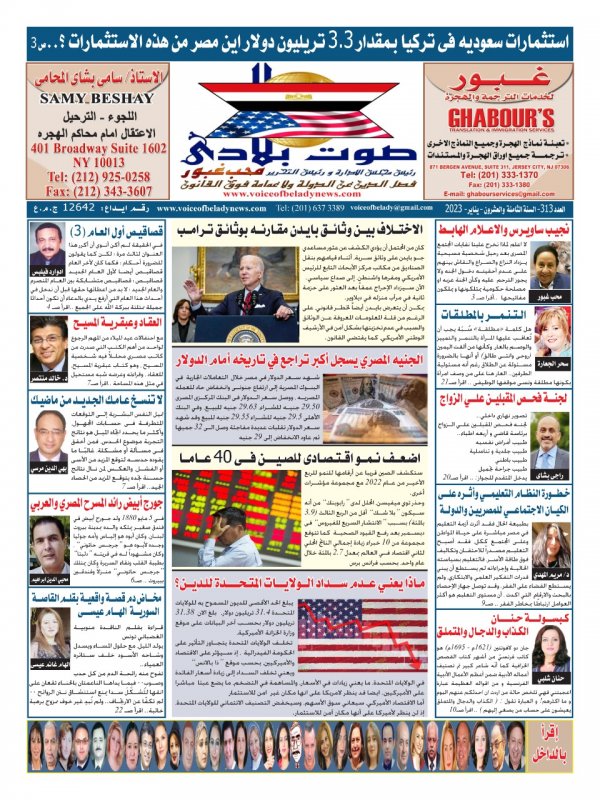Critical reading of the very short story (Hour of Dismissal) of the important writer Elham Issa by the critic Saeeda Barakati (Tunisia).

Critical reading of the very short story (Hour of Dismissal) of the important writer Elham Issa by the critic Saeeda Barakati (Tunisia).
Translated into English: Awny Seif
Reading.
Hour of Dismissal
========
The man who carried the factory inside his heart and ran its turbine with his conscience... And all the time the world was reduced to fix it until the company escaped the grip of collapse... After the reformation, his watch was inconsistent with the business philosophy, the board enacted an early referral law, to dismiss him ,in honour of the profession..
==========
Let's go from the threshold of the text, the title: Hour of Dismissal, two words, the first describing second.
If we read each one individually, each single comes without article,and the questions start, an hour of time? resurrection hour? An hour's meeting?
Dismiss an employee? This is what the reader will go straight to, without interpretation or diligence.
All of us in the direction of work think, sacking is only related to "work, job."
The address might be the hour someone was sacked from his job.
Let's find out together in the first story line.
Dr. Ilham says in the first line, "The man who carried the factory inside his heart and ran its turbans with his conscience."
Defined the place, "a factory,"
A line that came with love and attachment to this place from the "man who" confirmed "who this man was, carried the company in the feather of his heart, saved it when it failed,or its to material failure" such as bankruptcy, machinery obsolescence. A new renaissance the company witnessed during his supervision period. Points of continuity"........." The author leaves us room to swim our imagination in what he did until the company recovers or reforms.
"After Reformation" then lets you down like it says, "But," His watch is inconsistent with the business philosophy. "
How? And we fill in the questions...
In my opinion, it suggests that the Company experienced a high-quality industrial renaissance, including "a modern technological renaissance, or he was an opponent of decisions that did not serve the interest of the Company, or may" he became old " is the reasons for dismissal, which excluded it," at a young age... "was mentioned in the story.
Dismissal, not resignation, how painful and painful it is for someone to dismiss you from something you gave all the of you "heart feather," and after this bid is a tender!?
I regret him and his feeling when they sacked him "early" in honour of the profession!!!
What honor is this when someone cuts from their roots? What's the honour of a career? How easy it is to manipulate the words "honour", it is a stain on the faces of those who decide to dismiss him and he is still in his pod what is offered to this "company."
The story of its intense events was reduced by Dr. Issa in four lines and the owners of the company reduced a career of workers,they enveloped in rationed words:
The Board of Directors enacted an early referral law in honour of the profession.




 رئيس التحرير يكتب : من التراب وإلى التراب يعود .. تحويل جثث الموتى إلى سماد عضوى
رئيس التحرير يكتب : من التراب وإلى التراب يعود .. تحويل جثث الموتى إلى سماد عضوى
 رئيس التحرير يكتب : لماذا تصر الحكومة على استمرار شريف أبو النجا رئيسا لمستشفى 57357 رغم الشواهد العديدة على فساده
رئيس التحرير يكتب : لماذا تصر الحكومة على استمرار شريف أبو النجا رئيسا لمستشفى 57357 رغم الشواهد العديدة على فساده اقرأ في العدد الجديد ( عدد يناير ٢٠٢٣ ) من جريدة صوت بلادي
اقرأ في العدد الجديد ( عدد يناير ٢٠٢٣ ) من جريدة صوت بلادي








